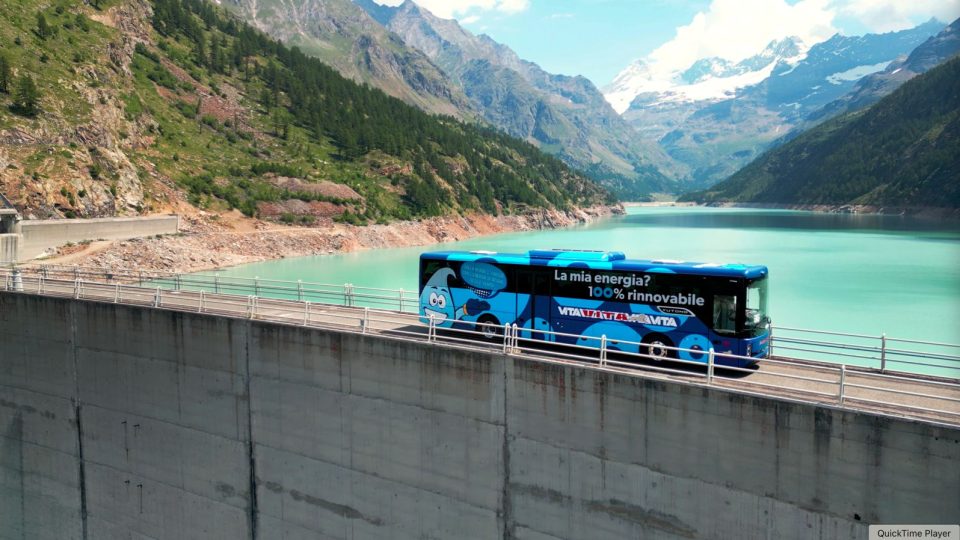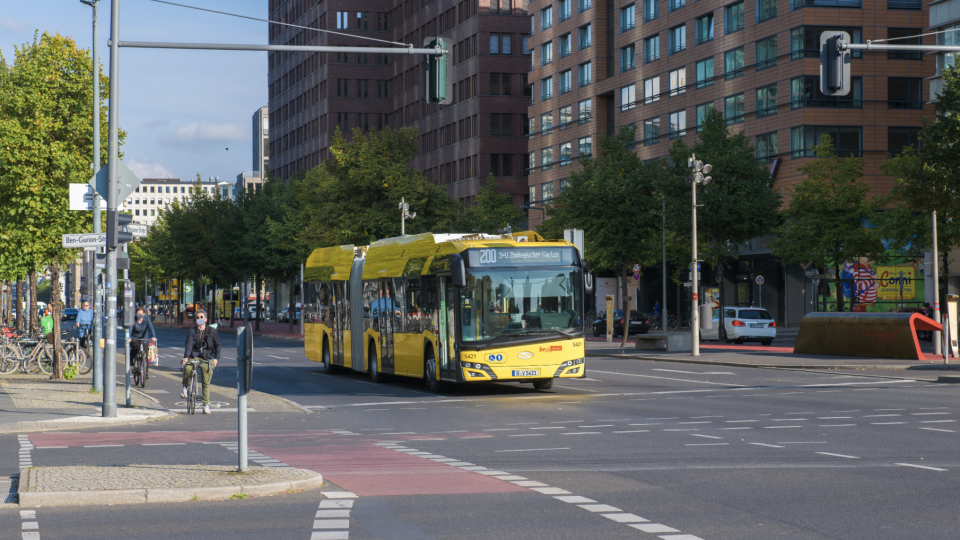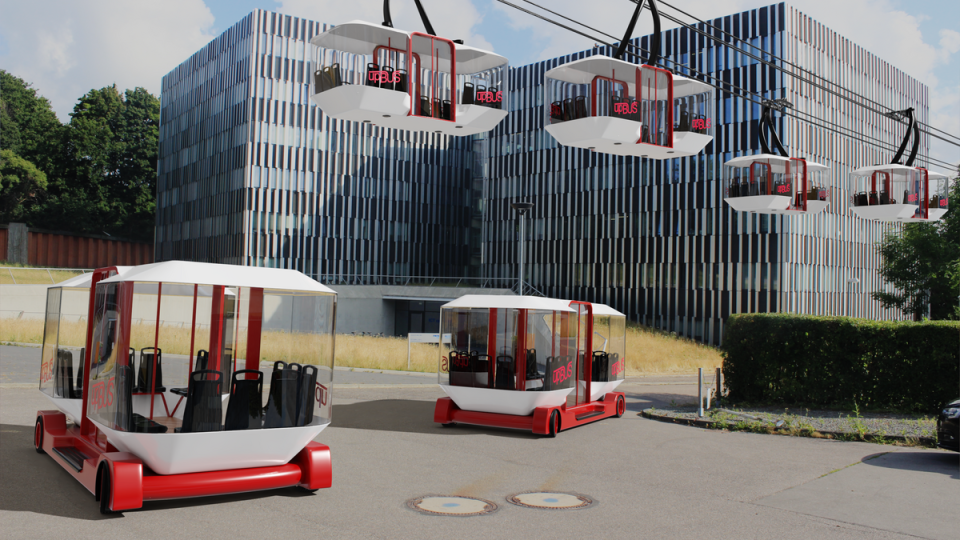Wrightbus unveils the single deck ZE buses GB Kite Hydroliner and GB Kite Electroliner
Wrightbus GB Kite Hydroliner and GB Kite Electroliner. Besides the double decker buses (BEV and FCEV), now Wrightbus is launching a couple of single deck vehicles, also based on battery-electric and fuel cell driveline. Both vehicles are expected to go into production in the first quarter of 2022. Wrightbus will showcase its new single deck […]
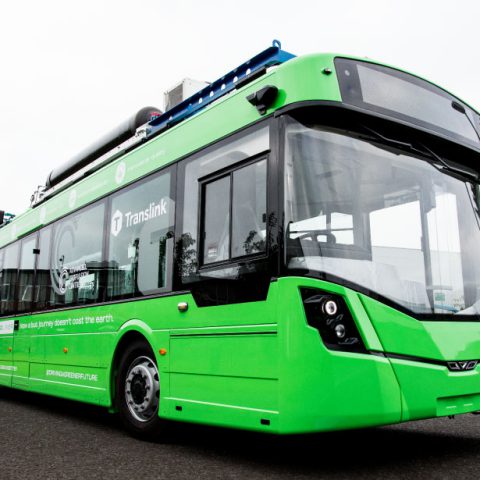
Wrightbus GB Kite Hydroliner and GB Kite Electroliner. Besides the double decker buses (BEV and FCEV), now Wrightbus is launching a couple of single deck vehicles, also based on battery-electric and fuel cell driveline. Both vehicles are expected to go into production in the first quarter of 2022.
Wrightbus will showcase its new single deck GB Kite Hydroliner bus at the Cenex LCV21 (Low Carbon Vehicle) event on 22nd and 23rd of September. The same technology solution will also be used for a new single deck GB Kite Electroliner battery powered bus. They’ll be joining the hydrogen bus StreetDeck FCEV, announced in late 2018 (and recently rebranded as StreetDeck Hydroliner) and the Wrightbus StreetDeck Electroliner, being the latter also recently presented.
We’re proud to be at the very forefront of zero-emission bus manufacturing. The creation of our new single-deck hydrogen and single-deck electric battery buses means Wrightbus is proud to be the only UK manufacturer currently able to offer four zero-emission vehicles to the market – which include the Hydroliner, the first hydrogen double decker bus in the world.
Jo Bamford, Wrightbus Executive Chairman
Ballard Power Systems is the fuel cell modules provider also for the single deck fuel cell bus model, which features a maximum battery capacity of 45 kWh. Hydrogen tanks haver room for up to 50 kilograms of hydrogen. Axles are by ZF. Battery capacity on the Wrightbus GB Kite Electroliner stands out, with a maximum storage capacity of 567kWh (also 340kWh or 454kWh are possible).
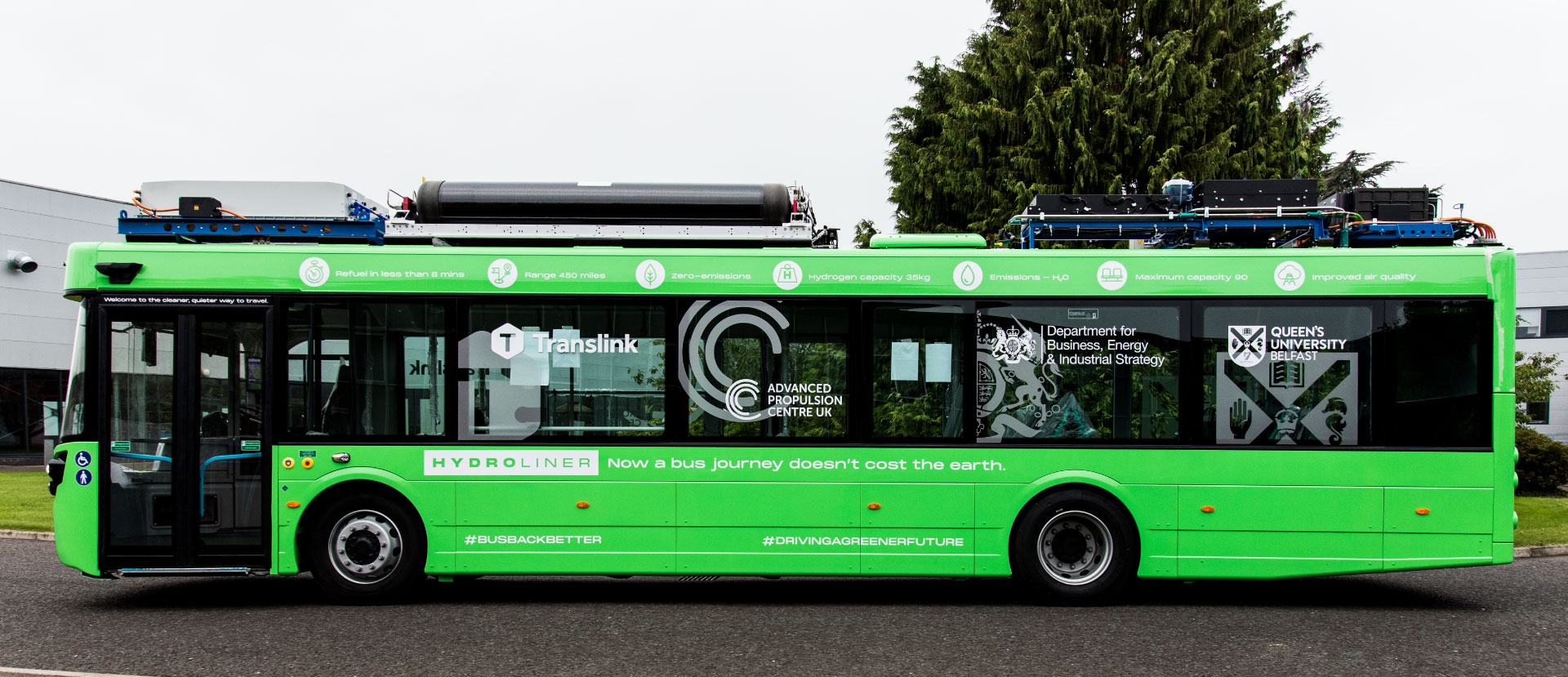
Wrightbus, four zero emission buses in the range
Both GB Kite models can carry 90 passengers, the manufacturer says: «The Hydroliner has a range of up to 640 miles while the Electroliner up to 300 miles on a single charge, the fastest charging version can be charged in just 2.5 hours. Both buses share an 86% parts commonality with their Double Deck sisters which delivers significant benefits to operators in terms of reducing complexity and costs for fleet maintenance».
Wrightbus recently announced the creation of up to 300 permanent jobs after winning a string of orders from the UK and Ireland. It is also converting 120 existing temporary jobs into permanent positions as it looks to ramp up production at its Ballymena headquarters.
Its new buses have been developed following the award of funding from the Advanced Propulsion Centre’s Advanced Route to Market Demonstrator (ARMD) Competition.
Wrightbus GB Kite bus range
Jo Bamford, Wrightbus Executive Chairman, said: “The funding from the ARMD competition has been invaluable in allowing us to develop the technology for our two new zero-emission single-decks at considerable pace. At Wrightbus, we’re proud to be at the very forefront of zero-emission bus manufacturing. The creation of our new single-deck hydrogen and single-deck electric battery buses means Wrightbus is proud to be the only UK manufacturer currently able to offer four zero-emission vehicles to the market – which include the Hydroliner, the first hydrogen double decker bus in the world.
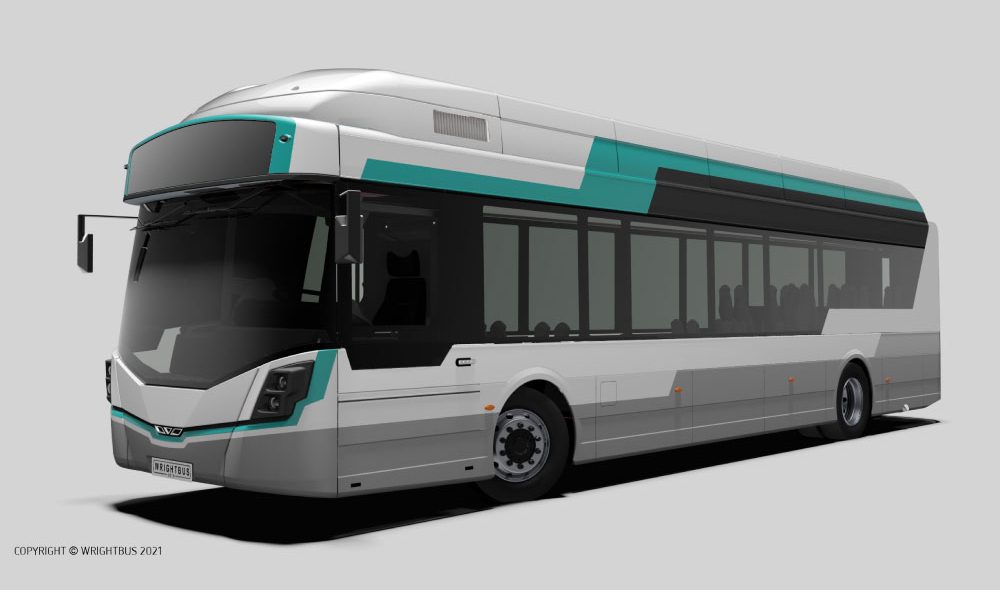
A demonstration-version of the GB Kite Hydroliner will be at LCV21 to demonstrate the technology. The buses are expected to go into production in the first quarter of 2022.
Ian Constance, Chief Executive at the APC, said: “We launched our ARMD competition at the height of the pandemic, when the global automotive industry was at a near standstill. The aim was to kick-start innovation back into action and ensure that late-stage R&D projects continued to accelerate towards net zero. What we see unveiled at this year’s Cenex-LCV and Cenex-CAM, are 12 projects we have supported, that have made phenomenal progress in less than a year. In some cases the technology developers behind them have significantly increased their operations, leading to jobs and growth. It’s the very definition of building back better. This event allows Wrightbus to showcase the technological capability they have developed and the opportunities that provides to anchor clean automotive manufacturing in the UK.”




